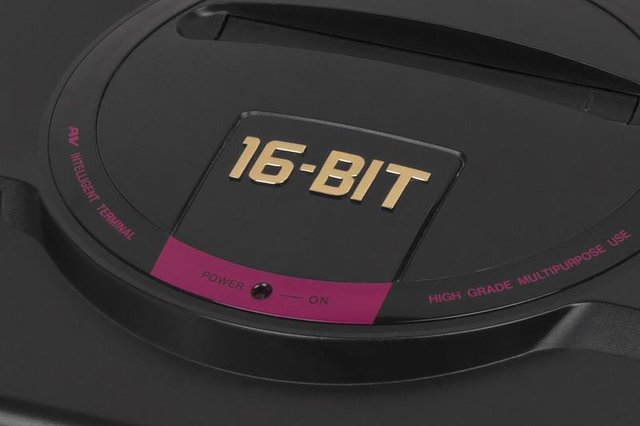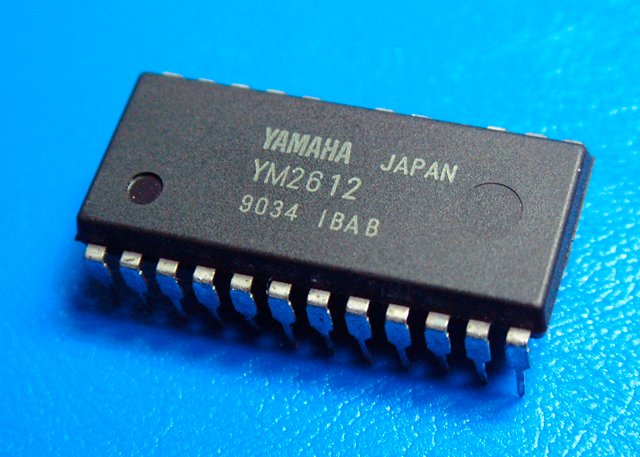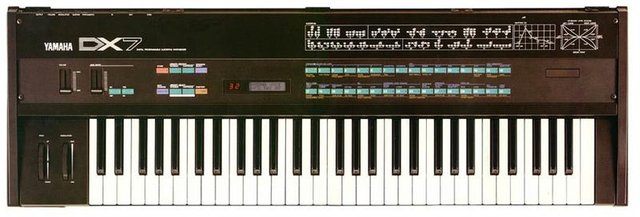No, the Megadrive/Genesis soundchip doesn't suck !

A long time ago, for a time that people under twenty could not know, the 16-bit war was taking place in the playgrounds. Under the amused eye of the experienced computer scientists swearing only by the Atari ST as well as the Amiga and the patented bourgeois rallied under the inaccessible banner of the nobility made in SNK, a split took place between two quite distinct clans. On the one hand, the Nintendo brotherhood showed unfailing loyalty to the Kyoto firm, with a worldwide success with its NES and its inventive games with proven gameplay. The arrival of the Super Nintendo in 1992 in our countries once again provoked the allegiance of this population, prostrating itself quite naturally to the announced abilities of the last of the line. Against all odds, a rebel group then opted for a new path, that of protest. Now taking sides with the revolutionary Megadrive / Genesis, these new partisans, who were gradually flocking in numbers, perceived in this providential console the time of change and maturity.
Coming a few years before its rival, the Sega machine shone with its new, resolutely more mature franchises and its hardware already largely mastered by a majority of existing developers in the entertainment sector. It was not uncommon to see these two camps confront each other through endless verbal battles, usually with their own set of approximate technical characteristics. One of the fallacious arguments, regularly projected in the face of these terrible gaming reformists, was to discredit the Sega machine's ability to produce quality sound. Although this opinion, which is widely criticized by defenders on the other side, is purely subjective, it is not a truth.
A voice tonality of rare complexity!

The Megadrive / Genesis is a concentrate of technology for a machine released in 1988. Under its austere appearance, this one incorporates the legendary Motorolla 68000, a processor that has already proven its power and modularity since the mid-1980s. However, in this article we will focus more on the sound part of the machine. In addition to the Z80 (8bit processor) which has the role of ensuring a certain backward compatibility with the Master System gaming range, we find at its side a Yamaha chip well known to musicians operating during this period in the video game world.
Evolution of the YM2413, present in machines such as the MSX, theYM2612 is a sound generator offering quite advanced features. Allowing to generate six simultaneous FM channels, this chipset allowed the possibility to play back pre-programmed samples, coming from various sources, on a channel. FM synthesizers were then more widely used, including the very popular Yamaha DX7 and Roland D-50, both used by music industry professionals. In addition, the Mégadrive could rely on a 4-way PSG chip, inherited from its illustrious ancestor. A specific access to the Z80 allowed to interact between these two modules and control them like a conductor ! This mix, from several sources, offers multiple possibilities if this architectural combination is used properly.

And that's where the difficulty lies in producing a soundtrack worthy of the name on this console. Because if the Megadrive / Genesis has suffered from a reputation as a machine with painful and flat sounds, happily pointed out by its detractors, it is nothing more or less than because of poor management of its potential by lazy musicians / programmers. Indeed and more precisely on the Western side, game composers had for the most part become accustomed to the easy use of DSP or custom sound chipset, present in machines of American or European origin. We must therefore look to Japanese productions to find music that can extract the very essence of this brilliant combination. It must be admitted that FM modulations were somewhat the norm as long as this type of musical material was widespread in these countries.
After theory comes practice !
When you think of what Sega 16 bits's console has been able to provide in terms of musicality, you can't help but remember Yuzo Koshiro's exceptional work on the Bare Knuckle / Streets Of Rage saga. Not only is it a true Beat'em all monument, but the series also benefited from an incredible soundtrack with resolutely 90's tones. The musician mainly used the possibility of producing and injecting a sequence of samples, previously composed on a Roland synth, in order to create a dynamic rhythmic base of a depth never heard before in a work of this kind !

Hitoshi Sakimoto also distinguished himself by his talents as a hacker, notably by the tour de force exercised during the porting of Gauntlet on the Mégadrive. Eternal dissatisfied and to the extreme, the artist tried to design his own sound pilot for the needs of this title. The result is breathtaking, literally making the guts of the console spit out to the delight of music lovers.

Finally, in my humble opinion THIS is the ultimate soundtrack ever created for the lady in the black dress. Undoubtedly memorable title, Thunder Force IVamazes the player both by its nervous staging and by its music that makes full use of the machine's capabilities. For the record, the team is led by Naosuke Arai, was passionate about heavy metal. It is therefore with a view to reproducing this very particular sound, that the group concentrated on a method capable of recreating an electric guitar sound, through the Megadrive's FM synthesizer. This inevitably faced difficulties related to technical limitations, so the team finally decided to use the system's distorting sound effects to achieve positive results. And what can I say except that TechnoSoft signed one of the most amazing soundtracks of the video game !

No, clearly the Megadrive / Genesis is not a console without any interest in its sound. On the contrary, she has a chest if we help her to deploy all her vocal cords ! Although this is an outdated technology, from another time, it is still remarkable to be able to listen to the best that some titles have to offer in this field. Since before being musicians, those in charge of creating all these sounds were first and foremost experienced technicians. A practice in the process of disappearing that could be described as handicraft today, with the advent of modern consoles with much higher capacities !
@ixindamix You have received a 100% upvote from @steemconductor because this post did not use any bidbots and you have not used bidbots in the last 30 days!
Upvoting this comment will help keep this service running.
Your outstanding gaming content has caught our eyes and is rewarded with an upvote. Please visit our page @steemgg to learn more about Steemgg, the first html5 gaming platform built on the Steem Blockchain.